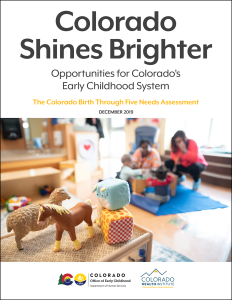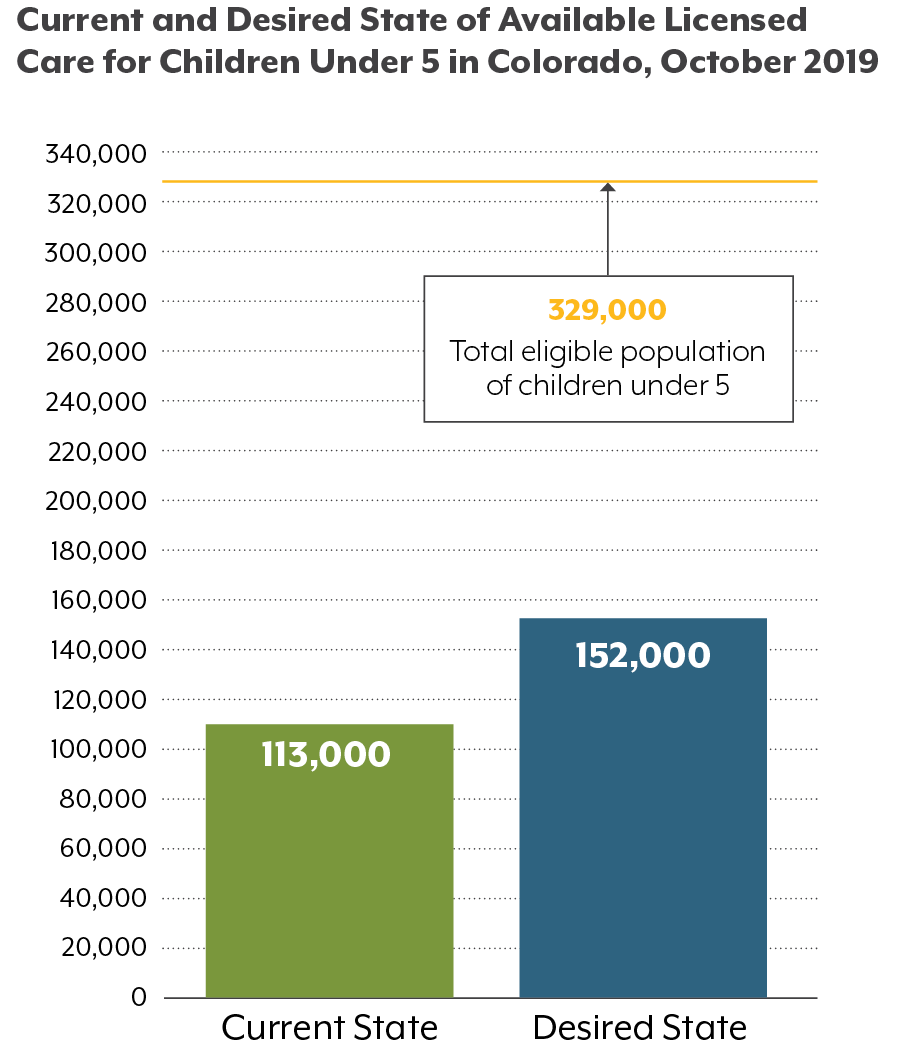Children’s brains develop quickly during their first few years of life. In fact, more than one million new brain connections form every second. Because of this, the experiences and relationships that young children have in the early years can impact them for life.
Whether a child is at home with their parents or in a child care program with professionals, it’s important for children to be with caring adults who ensure they are safe and able to participate in a variety of activities that help them learn and grow.
This Colorado Birth Through Five Needs Assessment looks deeply into the needs of Colorado's youngest children and their families.
The Colorado Department of Human Services Office of Early Childhood (OEC) contracted with the Colorado Health Institute (CHI) to conduct the assessment.
CHI built a first-of-its-kind Child Care Model to offer a new look at how Colorado’s youngest children are being cared for today — and how the system would have to change to meet parents’ preferred choices for care.
The Child Care Model revealed that the state of Colorado needs licensed care for another 39,000 children to meet the needs of the state’s families. Only a third of infants whose parents want licensed child care are receiving it today. And an estimated 10% of parents who care for their children full time say they could go back to work if they could find affordable care.
The benefits of taking action last for generations. Investments in quality early childhood development for vulnerable and underserved children demonstrate cost savings as a result of better outcomes in education, health, sociability, economic productivity and reduced crime.
Twelve Opportunities for Colorado Families
The needs identified in this report are accompanied by solutions that can create positive change for this generation of children. From strengthening the early childhood workforce to aligning data systems to promoting best practices, solutions are at hand.
These goals are advanced by the 12 opportunities that this Needs Assessment identified:
- Increase availability of affordable, convenient, and quality care, especially for infants and toddlers
- Provide more equitable and culturally relevant care
- Increase inclusivity and access for children with special needs
- Continue investing in quality-enhancing professional development opportunities and workforce recruitment and retention across the early care and education landscape
- Continue to develop a diverse early childhood workforce
- Increase knowledge and supports around child care licensing and offer essential business supports to child care providers
- Centralize and increase parent and caregiver access to early childhood information
- Increase transition knowledge and associated supports
- Expand access to early childhood mental health consultation
- Invest in rural outreach
- Integrate disparate data sources
- Enhance cross-sector collaboration to build data systems that support coordinated care and capture long-term outcomes
CHI and OEC researchers reached out across Colorado to listen to parents, caregivers, early childhood professionals, program administrators, and policymakers. The opinions captured were broad and diverse, but taken together, they provide a clear direction for the state’s leaders: Now is the time to invest in these opportunities.
Time is fleeting. Infants grow quickly into toddlers, and preschoolers advance to kindergarten. Children grow faster than policy can evolve. The need to improve access to, and the quality of, early childhood programs and services is urgent if we are to affect the hundreds of thousands of young children in Colorado today.
This report is prepared on their behalf.
The full report is on the OEC website. Click on the report cover to download the PDF file.



